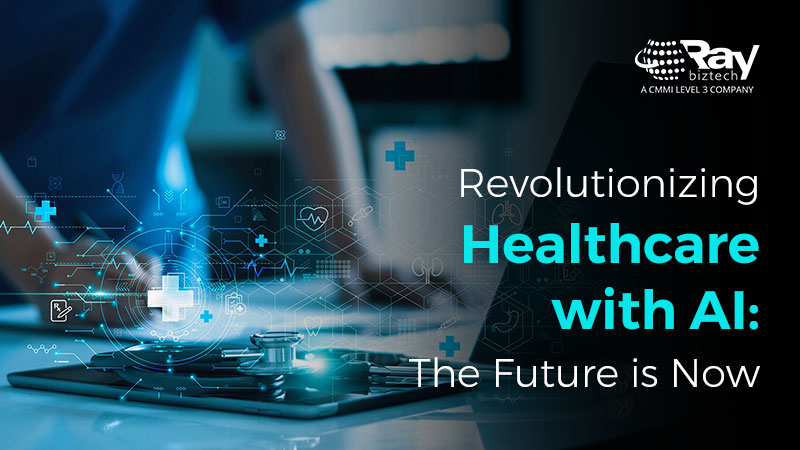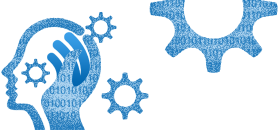Revolutionizing Healthcare with AI: The Future is Now

In recent years, Artificial Intelligence (AI) has emerged as a transformative force across numerous industries, with healthcare being a prime example. AI is revolutionizing healthcare by introducing groundbreaking advancements that enhance patient outcomes, increase operational efficiency, and redefine approaches to medical treatments and diagnostics. From predictive analytics to personalized care, AI is establishing new benchmarks in the healthcare sector.
Let's dive into some of the remarkable ways AI is making a difference in healthcare:
Predictive Analytics: Spotting Health Trends and Outcomes Ahead of Time
One of the most significant contributions of AI in healthcare is its ability to predict and analyze trends using vast amounts of data from electronic health records (EHRs), wearable devices, and other sources. By crunching this data, AI algorithms can identify patterns and forecast future health trends and outcomes. This capability has several valuable applications:
- Early Disease Detection: AI can analyze patient data to spot early signs of diseases like cancer, diabetes, and cardiovascular conditions. Catching these diseases early allows for timely intervention, leading to more successful treatment and reduced healthcare costs.
- Predicting Patient Deterioration: In hospital settings, AI can monitor patient data in real-time and predict potential deterioration. For example, AI algorithms can alert healthcare providers about patients at risk of sepsis, enabling proactive measures to prevent severe complications.
- Managing Chronic Diseases: AI can predict flare-ups and suggest preventative measures for patients with chronic diseases. By analyzing historical data and current health metrics, AI provides personalized recommendations that help patients manage their conditions more effectively.
Personalized Treatments: Tailoring Healthcare to Individual Needs
AI is transforming personalized medicine, also referred to as precision medicine. Conventional treatments typically adopt a one-size-fits-all strategy, which may not be suitable for every patient. AI overcomes this limitation by facilitating personalized treatments tailored to individual patient data.
- Genomic Medicine: AI algorithms can analyze genomic data to identify genetic mutations and variations that influence a patient's response to specific treatments. This information allows healthcare providers to customize treatments based on each patient's genetic profile, improving effectiveness and minimizing adverse effects.
- Treatment Optimization: AI can recommend the best treatment plans by analyzing data from similar cases. For instance, in oncology, AI can suggest the most effective chemotherapy protocols based on the patient's unique genetic makeup and tumor characteristics.
- Drug Development: AI accelerates drug discovery and development by predicting how different compounds interact with target proteins. This reduces the time and cost associated with bringing new drugs to market and enables the development of personalized medications.
Enhancing Diagnostic Accuracy
Accurate and timely diagnosis is crucial in healthcare. AI-powered diagnostic tools are enhancing the accuracy of diagnoses and reducing the likelihood of human error.
- Medical Imaging: AI algorithms can analyze medical images such as X-rays, MRIs, and CT scans with incredible precision. They can identify abnormalities, like tumors or fractures, that might be overlooked by human eyes. This leads to faster and more accurate diagnoses, allowing for timely treatment.
- Pathology: In pathology, AI can assist in analyzing tissue samples and detecting diseases like cancer. AI-powered digital pathology systems can process and interpret slides much faster than traditional methods, increasing diagnostic throughput and accuracy.
- Electronic Health Records (EHRs): AI can sift through EHRs to extract relevant information and identify patterns that may indicate underlying health issues. This helps healthcare providers make more informed decisions and ensures that critical information is not overlooked.
Streamlining Healthcare Operations
- Administrative Tasks: AI-powered systems are taking over routine administrative jobs like scheduling appointments, managing patient records, and handling insurance claims. This means less paperwork for healthcare staff and more time to focus on providing top-notch patient care.
- Resource Management: AI is a game-changer when it comes to managing resources in healthcare. It can predict patient admission rates and identify peak times, helping hospitals allocate beds, medical equipment, and personnel more effectively. Talk about optimizing efficiency!
- Supply Chain Management: Thanks to AI, we can say goodbye to overstocking and wastage of medical supplies. AI can predict the demand for these supplies and optimize inventory levels, ensuring that healthcare facilities always have what they need without going overboard on stock. It's a win-win for everyone!
Looking Ahead
The impact of AI on healthcare is nothing short of revolutionary. Beyond predictive analytics and personalized treatments, AI is enhancing diagnostic accuracy and streamlining operations. As AI technology continues to advance, its capacity to improve patient outcomes and optimize healthcare delivery will only grow.
For healthcare providers, adopting these AI innovations is crucial for staying at the forefront of the field and offering the highest quality care to their patients. The future of healthcare is undeniably linked with AI, ushering in a new era of precision, efficiency, and enhanced health outcomes.
Prepare to harness the power of AI in healthcare, as it is set to transform the industry for the better!

